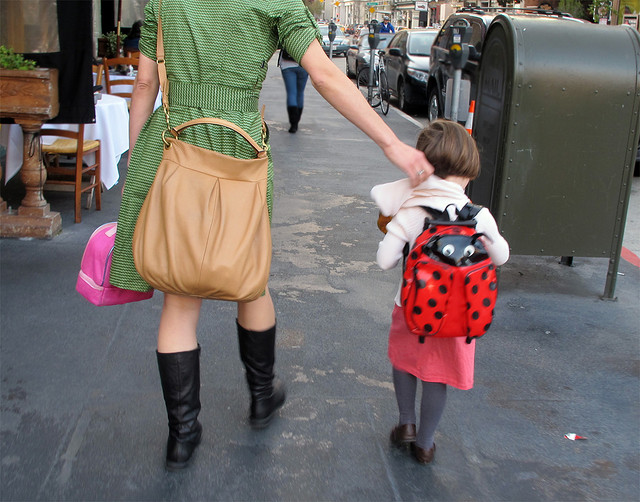
Sociologists Jamie Seabrook and William Avison’s research shatters the myth that children from single parent homes have worse outcomes than kids living with both parents. They told Northumberland Today that other factors better predict the future than whether a child lives with one versus two parents. “Instability really is the risk factor,” said Avison. “When there is a lot of transitioning in the family environment, that kind of instability doesn’t seem good for kids’ educational development and growing up to be adults.” They found that family structure had no impact on a child’s educational achievement or income, as long as the family structure remained consistent over time. When single mothers partnered and re-partnered several times, the researchers saw negative impacts on child outcomes compared to kids whose single mothers consistently single. Another interesting finding of the study is that children who grew up in stable single parent homes are less likely to divorce or separate than children who grew up in two-parent homes.
“The overarching conclusion is we have to be very careful saying the type of family you grow up in predicts kids’ success,” Seabrook said. Even if single parent homes are economically less advantaged than two-parent households, less money does not translate to differences in child education.

Comments 10
David — March 23, 2015
Links do not work. Also can you please link to the actual study?
tarastamm — March 23, 2015
Is this the research?
http://onlinelibrary.wiley.com/doi/10.1111/cars.12061/full
Sarah Catherine Billups — March 23, 2015
Here's the link to the news article: http://www.northumberlandtoday.com/2015/03/06/kids-from-single-mom-families-do-just-as-well-study
Sarah Catherine Billups — March 23, 2015
And the research: http://onlinelibrary.wiley.com/doi/10.1111/cars.12061/epdf
Philip — March 23, 2015
It's good a thing family structure isn't related to instability...
It's also a good thing that family structure isn't related to economic situation...
Paula Fomby — March 23, 2015
See Wu and Martinson (1993), which opened this line of inquiry with a rigorous and innovative research design over 20 years ago. Astonishing that it isn't cited in the authors' manuscript.
ZM — March 23, 2015
Hold on-- I'm surprised nobody has mentioned that the study was conducted in Canada. Given the differences in social welfare policies between the U.S. and Canada, there are very good reasons to believe these results may not be portable to the U.S, particularly with respect to the issue of economic disadvantage.
Single Parent Homes Don’t Ruin Kids: For Successful Kids, It’s Family Stability Over Family Structure | Welcome to the Doctor's Office — April 3, 2015
[…] by Sarah Catherine Billups from Citings & Sightings […]
Nene Machaka — April 12, 2015
I know most privileged kids a likely not to perform as expected rather rather than most unprivileged kids, but what about those who are still not privileged and still don't perform well to improve their situations?.. I say "IT ALL DEPENDS ON WHO ARE", Just as much as a single parent can groom a doctor and a set of parents groom a thug.
ToiniVeitonen — December 23, 2022
First, shadows are the reflection of our existence in the space. Then, our shadows overlap, intertwine, communicate. In this project, shadows are turned into subjective via https://ladydahmer.com/ representations of our mind states. Instead of being distorted by the source of light, the audience will be able to control their own shadows by wearing the headsets that collect EEG data from them and accordingly form fake shadows projected onto the ground beside them.